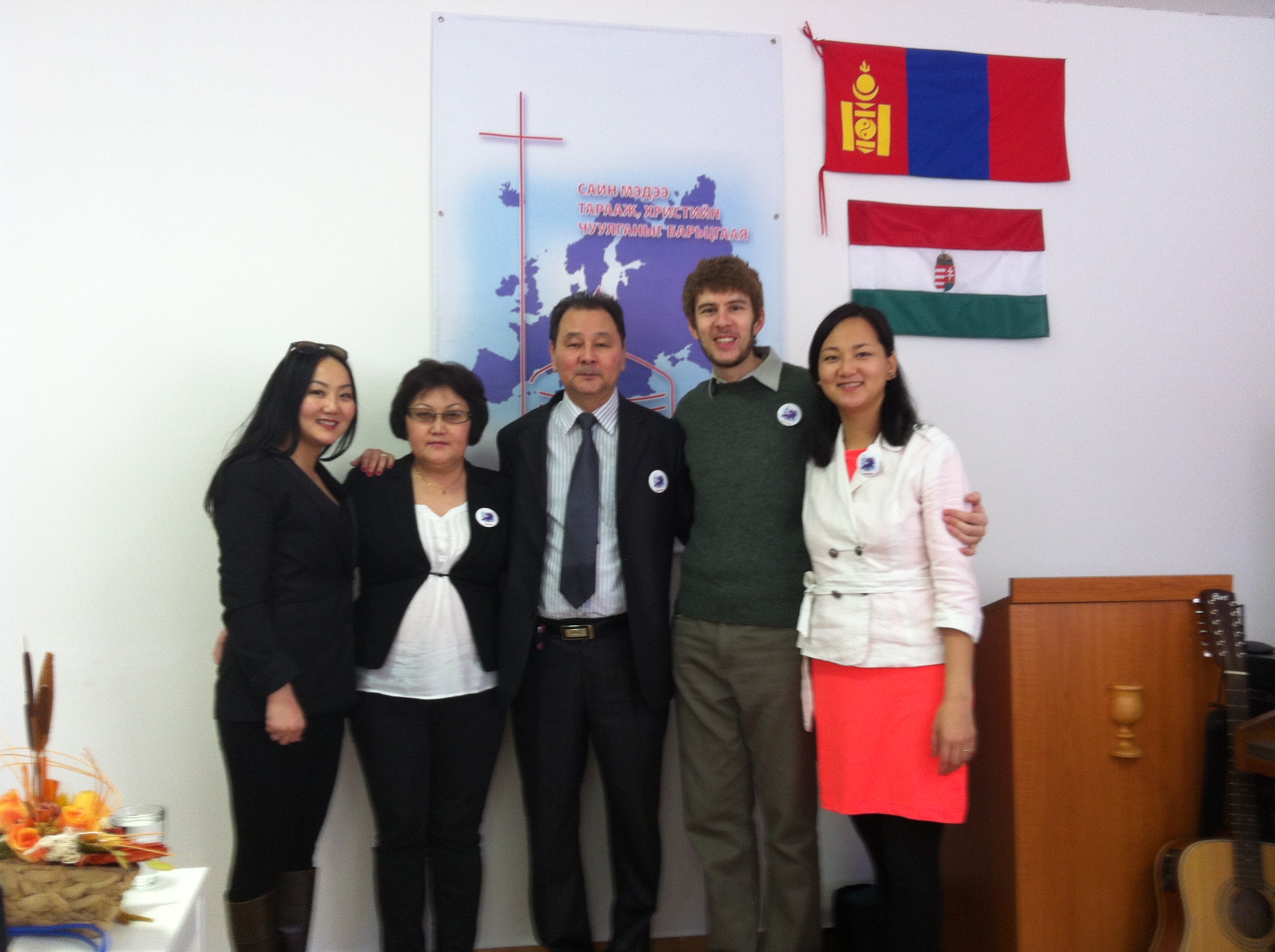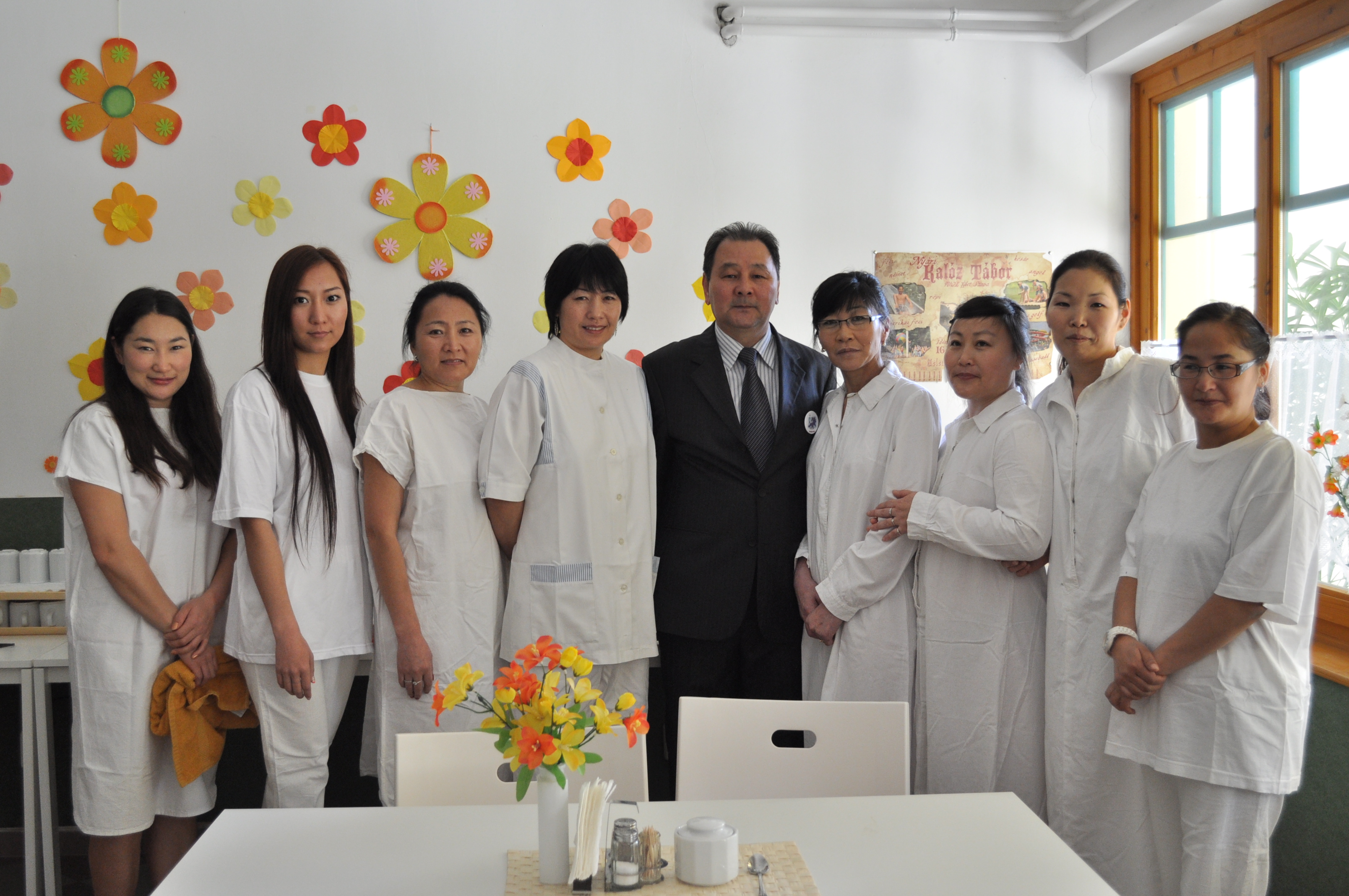New Mission Initiative in Hungary
New Mission Initiative in Hungary
Baptists in Hungary
Hungary is inhabited by about 10 million citizens and nearly two thirds of the population confesses allegiance to a church, but only about 10% practice their faith. There are also several ethnic minorities including the Germans, Jews, Mongols, Roma, Romanians, Slovaks etc.
The Baptist faith arrived to Hungary thanks to Johann Gerhard Oncken who had influenced Janos Rottmayer while in Hamburg. Rottmayer and his mission team were sent back on May 20, 1846 with the purpose of spreading the gospel which became a milestone in the history of the newly founded Hungarian Baptist Mission.
The Baptist mission work in Hungary has successfully continued until today. There are now about 12 thousand Baptists in the country.

The newest mission initiative is a well advancing work among the immigrants.
Tsevel is an ordained minister who lives in Budapest and is a missionary to the Mongols in Hungary and beyond... He is the indigenous church planter supported jointly by the BU of Hungary and the EBF to work as an evangelist among the Mongolian people.
Why Mongols come to Europe?
Two basic motives attract them to Europe: opportunity to work and study as they wish to upgrade their life. There are at least 20 thousand of Mongolians in Western Europe. However the number of new immigrants is decreasing because of the economic crises in Europe. Besides Budapest there are significant Mongol groups in Czech Rep (Prague, Ostrava), in Austria (Linz, Vienna), in England (London, Manchester), also in France, Switzerland and Sweden. They usually work hard, generally doing manual labor.
How can you describe your country?
The nation counts nearly 3 million citizens although was much larger in the past. The inland country borders with China and Russia. Mongolian independence was declared in 1911 after the fall of the Qing Dynasty however the newly established Republic of China considered Mongolia to be part of its own territory. The Chinese were eventually expelled by the Russian and Mongolian troops, and Mongolia's independence was declared once again on July 11, 1921.These events led to Mongolia's close alignment with the Soviet Union over the next seven decades. Only in 1991 Mongolia became independent from the communist rule. The Communists tolerated Buddhism which had been the predominant religion but didn’t allow any freedom to Christianity. The free Christian activity has only about 20 years of history in the modern time. There are now about 600 local congregations in Mongolia with the total of about 50 thousand members and the typical in Europe denominations are not existent there.
How did you come to Europe?
I and my wife decided to leave Mongolia about 20 years ago and moved to Western Europe. We travelled in different countries and finally settled in Budapest in 1998. The Mongolian speaking church in Budapest was started in 2006 and I was ordained by the Baptist Union of Hungary. It happens that I am the only ordained Mongol pastor in Europe who can preach the gospel in that language. During the last 5 years of ministry I had the privilege to baptize about 70 new Mongolian converts from Hungary, Austria and Czech Rep. This year during summer we organized a European conference for the Mongolian Christians and about 100 attended from several European countries: Austria, England, Hungary, Switzerland and Sweden. The conference was held in Balaton and this was the second event of that kind. Next year we plan to go to Sweden.

Our family comes from the Buddhist background from the side of my mother. However my father was a strong communist leader and we had lived in a rural location. In 2000 I went to a Christian church for the first time in my life. The contact person was a school mate of my daughter who was at that time only 10 years old. In 2005 I and my wife went to Mongolia after being absent there for about 15 years and visited a Christian church there which had a tremendous influence on our life. Until then we had not been aware of any Christian churches in Mongolia. Eventually we both became Christians by way of submitting our lives to Christ. At that time our two daughters had already been Christians. When we arrived back to Budapest we started a home group and one year later a Mongolian church was established. Soon after that we invited a pastor from Mongolia who spent about one month in Hungary ministering among the Mongols. Thanks to this hundreds of immigrants heard the gospel and dozens became Christians.
What are the biggest blessings and challenges in your work?
The most wonderful blessing is to reach out to people who need God and offer them the good news of the gospel. We ourselves came to Hungary looking for better life but we found even more: the eternal life when God touched us and changed our lives. Our inherited house and extended family are in Mongolia but we know that we have a goal to be in Budapest. We genuinely enjoy to be used by God and to serve our people in His name. The biggest challenge is that the Mongolians are hard-working people doing physical labor and hardly have enough time for fellowship with others. It happens that at times they are depressed and need counseling. Even though we have lived far away from our relatives, home land or familiar sights but we have been happy.
What is particularly distinctive about the Mongolian culture?
Mongolians are very traditional people. They cherish family and the oldest person is usually most revered there. Hospitality to visitors and strangers is great value for them too. Their national holiday is on July 11 to commemorate the Mongolian Independence day. During holidays they like to ride horses, play games, eat traditional meals cooked from the horse or lamb meat, boiled dumplings filled with meat balls, numerous milk products and sweet cakes. Another important holiday is in January – February to celebrate the lunar new year and the date depends on the moon. This holiday is about the spring overcoming the winter and people celebrate it with great happiness. The Mongolians respect old people and give gifts to them particularly for the new year celebration. It is greatest family occasion during the whole year.
What are your prayer requests?
To reach out to the Mongols with the gospel, to establish more churches that will be like refuge to our people who often feel perplexed and lonely, to train more leaders and to find sponsors who could facilitate our mission work.
Thank you for the interview and let’s pray for the work you are doing among the Mongolian immigrants in Europe.
Daniel Trusiewicz
EBF Mission Coordinator
To help planting reproducing churches!
To help growing healthy churches!
For the glory of God!
PS.
The Incarnate Network team in partnership with the BMS World Mission organize a mission conference in March 2014 on 'Pioneers in Context'. This provides opportunity of learning from stories of pioneering in different contexts and exploring together what principles can be applied to our own context. The gathering will comprise a mix of workshops, interactive sessions, talks, coaching and reflection. More info on website:
www.incarnate-network.eu/training-and-events/2014-incarnate-conference Incarnate acts as the church planting network of Baptist Union of Great Britain.